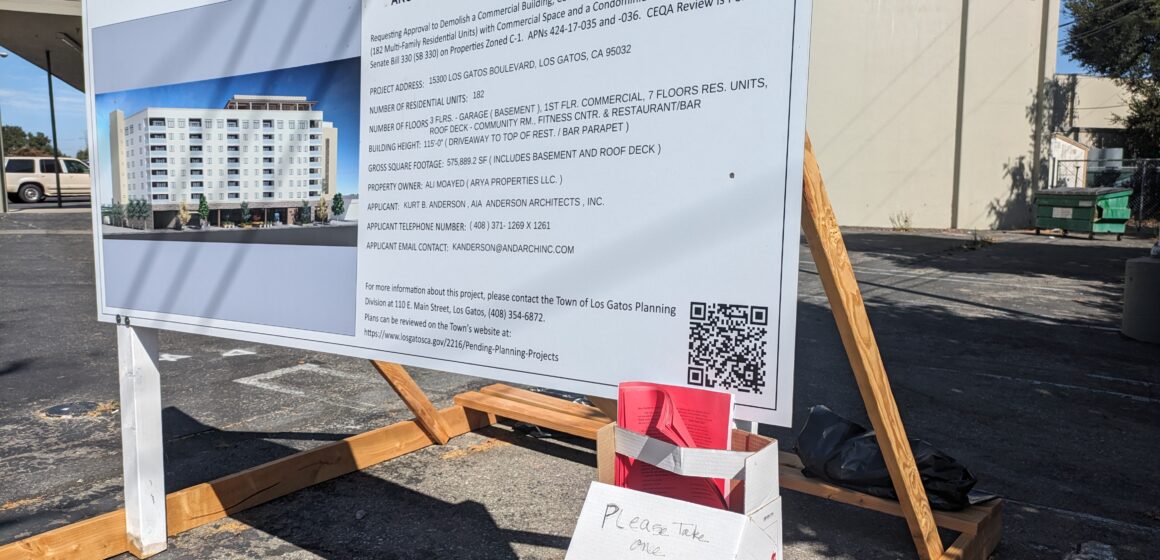It’s going to be a lot harder to protest new housing in the West Valley.
West Valley residents and municipalities will have a difficult time fighting contentious housing projects using the California Environmental Quality Act (CEQA), thanks to two new bills that became law last month: Senate Bill 131 and Assembly Bill 130. The legal reforms allow more developers to bypass CEQA, a statewide law that requires local governments to evaluate, publish and mitigate environmental effects from projects before they’re approved. New housing projects proposed on vacant land in urban areas, also known as infill development, will no longer be constrained by environmental reviews if they are under 20 acres, less than 85 feet tall and meet local zoning standards.
That’s a good thing — especially in the West Valley where residents and officials often clash with developers over new housing — according to Urban Catalyst founder Eric Hayden. He said CEQA has evolved since 1970, when it was first introduced by then-Gov. Ronald Reagan. The law was intended to give the public a chance to weigh in on environmental issues for new developments.
Hayden, who is developing a 138-townhome project in Los Gatos, said the law is now being used to prevent new housing that isn’t environmentally harmful. He said costly yearlong delays caused by CEQA, combined with the threat of a CEQA-based lawsuit, can prevent development in a region that needs new housing.
He added the reforms won’t harm the environment because most developers will still complete many of the studies listed in CEQA to ensure the project is viable.
“The process that we’ve got here in California is the worst in the country, the most cumbersome and the most susceptible to lawsuits,” Hayden told San José Spotlight. “And that shouldn’t be the way it is.”
But residents are still concerned about what the reforms could mean for their neighborhoods.
Jak Van Nada, founder of Los Gatos Community Alliance and longtime resident, said legal reform isn’t one size fits all. He said the reforms are concerning in a town with high fire risk, where putting large developments could strain Los Gatos’ emergency evacuation routes.
Van Nada agrees CEQA has been used as a weapon against new housing, but said these reforms help market-rate housing when the town needs affordable homes. Affordable housing won’t be largely affected by the changes because it already gets exemptions through existing laws including Senate Bill 35, passed in 2017 to allow cities to streamline and bypass certain review processes.
“Everybody says, ‘I love Los Gatos.’ I think we’re gonna have a hard time saying that once these projects go up,” Van Nada told San José Spotlight. “Builders are going to make a lot of money. They’re going to pull up stakes, go out of town, leave here and we’ve got to deal with the mess.”
Each West Valley municipality has to hit certain housing goals by 2031 to comply with state mandates. Los Gatos has to build nearly 2,000 homes, Cupertino 4,588 and Campbell 2,977.
Campbell Community Development Director Rob Eastwood said the reforms could help boost the city’s housing stock. He said any little bit helps because at the rate developers are building in Campbell, the city will only have 687 new homes by 2031. Other West Valley municipalities are also behind on their targets.
“There’ll be more confidence for housing developers to invest in sites,” Eastwood told San José Spotlight. “It’ll just make the whole process faster.”
 It’s too early to tell how the reforms will affect the West Valley’s smaller cities now that the CEQA changes have been codified.
It’s too early to tell how the reforms will affect the West Valley’s smaller cities now that the CEQA changes have been codified.
But Jim Sullivan, who’s been in the development field for 35 years and worked throughout Santa Clara County, said the changes will likely significantly help smaller developers. He said the cost of an environmental impact report isn’t cheaper for developments with 10 homes or 100 homes, meaning small developers have a hard time penciling their projects out.
“I don’t see people rushing in and flooding cities just because AB 130 and SB 131 have recently passed,” he told San José Spotlight. “It does make it easier. For that, every developer, big or small, is grateful.”
At the local level, Cupertino Councilmember J.R. Fruen, who has a background in housing law, said the reforms mean cities should front load their planning process from the start rather than relying on CEQA.
“It will force cities to engage in good faith planning efforts from the beginning because your initial planning efforts are still subject to CEQA,” he told San José Spotlight. “It makes sense that you would focus your energy there and make sure that your code means something.”
Contact Annalise Freimarck at [email protected] or follow @annalise_ellen on X.



Leave a Reply
You must be logged in to post a comment.